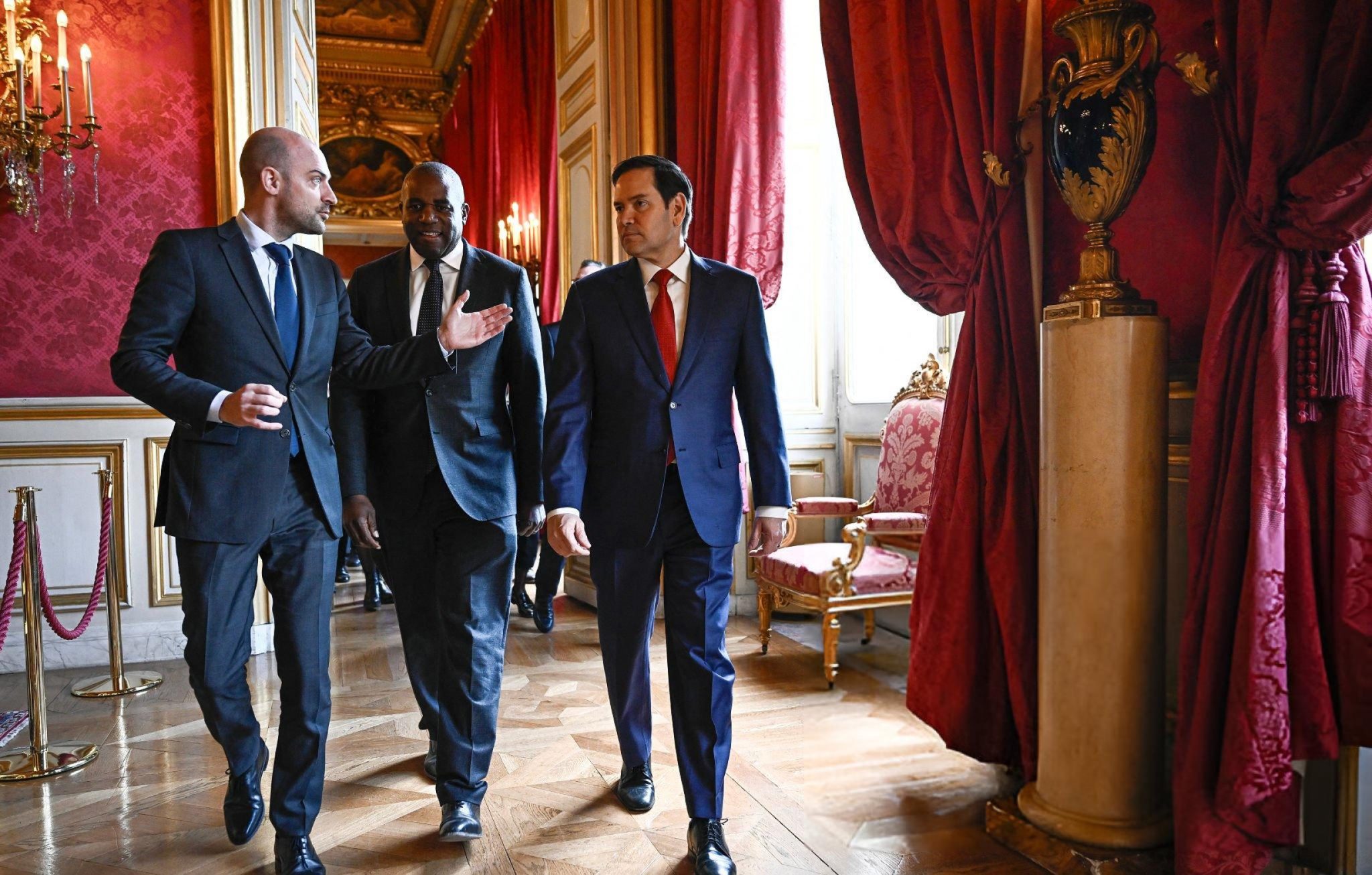US Secretary of State Marco Rubio has signalled that Washington may soon walk away from efforts to broker peace in Ukraine, as diplomatic talks in Paris drew mixed results. The high-level meetings, which included UK Foreign Secretary David Lammy and representatives from the EU, Ukraine, and France, were intended to reinvigorate a stalling peace process – but yielded few clear breakthroughs.
Speaking to reporters as he departed the French capital, Mr Rubio issued a stark warning that the US would not remain engaged indefinitely without clear signs of progress.
“We need to figure out now, within a matter of days – not weeks – whether this is doable in the short term,” Mr Rubio said. “If it can, we’re prepared to do whatever we can to facilitate that and make sure it ends in a durable and just way. If not, I think the president’s probably at a point where he’s going to say, well, we’re done.”
His comments followed discussions with French President Emmanuel Macron and foreign delegations, during which hopes of a renewed ceasefire were tempered by continuing intransigence from Moscow. Russia reportedly dismissed the latest proposal, one which Ukraine had conditionally accepted with support from Washington.
Talks around a truce have stalled in recent weeks after Russia rejected a joint US-Ukraine ceasefire initiative presented last month. The setback has prompted Washington to reconsider its diplomatic strategy, raising the possibility of shifting resources and political focus away from the negotiations entirely.
“If we’re so far apart that this is not going to happen,” Mr Rubio added, “then it’s time to move on.”
Despite the sombre tone from Washington, Foreign Secretary David Lammy struck a more hopeful note, emphasising international unity and ongoing commitment to a peaceful resolution.
“Today’s meetings with France, the US, Ukraine, and Germany underscore our shared commitment to global security,” Mr Lammy said in a statement following the talks. “Unity is our strength. We are working hard with allies to secure a lasting peace in Ukraine. Russia must agree to an immediate, full and unconditional ceasefire, as Ukraine has done.”
Mr Lammy’s remarks come as the UK and France continue their push to build a broader coalition of nations willing to uphold and enforce any eventual ceasefire. The plan, which echoes historical peacekeeping efforts, would aim to prevent future escalations and ensure territorial stability.
Meanwhile, Ukraine’s Economy Minister Yulia Svyrydenko confirmed that the US and Ukraine had signed a memorandum of intent to pursue an economic partnership – a sign of continued bilateral cooperation despite diplomatic frustrations.
Posting on X (formerly Twitter), Ms Svyrydenko said the memorandum was a crucial first step toward a broader agreement granting the US access to Ukraine’s valuable mineral resources, while also laying the groundwork for a post-war reconstruction investment fund.
“This partnership will help both nations,” she wrote. “The mineral agreement is a strategic component for Ukraine’s recovery and long-term economic stability.”
US officials echoed her optimism, suggesting that a full accord on the partnership could be completed as early as next week. However, this economic development was somewhat overshadowed by the uncertainty surrounding the peace process itself.
With Mr Rubio now openly questioning the viability of talks, attention may soon shift to what a ‘Plan B’ could look like for Washington – whether it involves greater military aid, a reorientation towards economic support, or a pivot in diplomatic posture.
For now, all eyes remain on whether Moscow shows any willingness to reconsider its stance and re-engage in meaningful dialogue. Time, according to the US Secretary of State, is fast running out.






